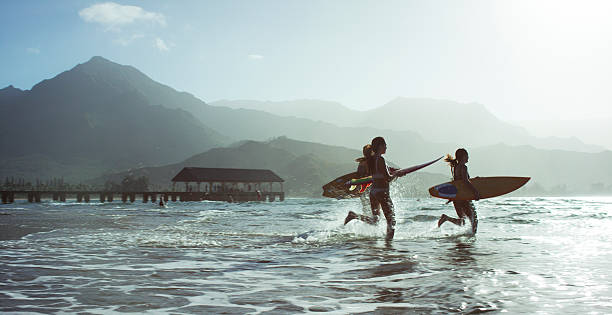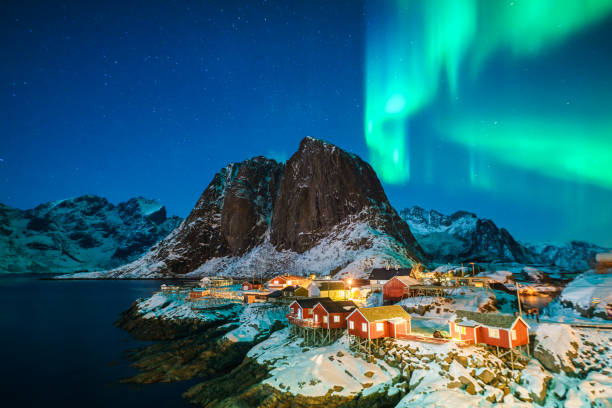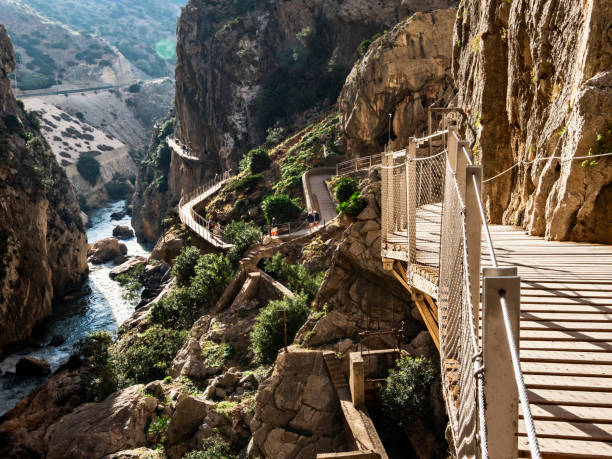Hawaii, an enchanting archipelago located in the central Pacific Ocean, is not just a tropical paradise but also a unique tapestry of culture, history, and natural wonders. From its stunning landscapes to its rich traditions, Hawaii has captured the hearts of many. Whether you’re a seasoned traveler or planning your first visit, these 15 fascinating fun facts about Hawaii will deepen your appreciation for this extraordinary state.
1. Hawaii’s Unique Geography
Hawaii is the most remote island chain in the world, situated approximately 2,000 miles from the nearest continental landmass. This isolation has led to the development of diverse ecosystems that are unlike anywhere else on the planet. You can find lush rainforests teeming with biodiversity, arid deserts with unique flora, and volcanic landscapes that tell the story of the earth’s fiery past.
Imagine hiking through a vibrant rainforest, where tropical flowers bloom amid towering trees, and then suddenly finding yourself in a stark desert landscape just minutes later. The sheer variety of ecosystems means that every exploration reveals a new adventure. With its diverse landscapes, including stunning beaches, dramatic cliffs, and serene valleys, Hawaii is a true tropical heaven.
Importance of Conservation
This unique geography comes with a responsibility to preserve its natural beauty. Conservation efforts are vital to maintaining the delicate balance of Hawaii’s ecosystems. By visiting national parks and protected areas, tourists can enjoy the natural wonders while supporting sustainability initiatives.
2. The Hawaiian Archipelago
The Hawaiian Archipelago consists of 132 islands, atolls, and reefs, but it’s the eight main islands that tell the story of Hawaii. Each island has its own character and charm:
- Kauai: Known as the “Garden Isle,” Kauai is famous for its lush greenery, dramatic cliffs, and breathtaking waterfalls. It’s a paradise for hikers and nature lovers.
- Oahu: Often referred to as the “Gathering Place,” Oahu is home to the vibrant city of Honolulu, the famous Waikiki Beach, and the historic Pearl Harbor. This island offers a mix of culture, nightlife, and stunning landscapes.
- Maui: Known as the “Valley Isle,” Maui is famous for its beautiful beaches, the scenic Road to Hana, and Haleakalā National Park, where you can watch the sunrise from the summit of a dormant volcano.
- Big Island: The largest of the islands, the Big Island is where new land is created from lava flows. It features diverse landscapes, including volcanic craters, lush rainforests, and black sand beaches.
The Northwestern Hawaiian Islands
Beyond the main islands, the northwestern Hawaiian Islands are a protected area known for their rich marine life and historical significance. These islands are home to numerous endangered species and are a crucial part of the Hawaiian ecosystem.
3. Hawaii Volcanoes National Park
Hawaii Volcanoes National Park, located on the Big Island, is a testament to the power of nature. This park is home to two of the world’s most active volcanoes: Kilauea and Mauna Loa.
- Kilauea: Known as the most active volcano on the planet, Kilauea has been erupting since 1983, shaping the landscape and creating new land. Visitors can witness lava flows, steam vents, and the incredible process of geological change.
- Mauna Loa: The largest volcano on Earth by volume, Mauna Loa rises majestically above the landscape. Its summit offers stunning views and a sense of the vastness of nature.
A Living Laboratory
Hawaii Volcanoes National Park is more than just a tourist attraction; it is a living laboratory that showcases the intricate processes of creation and destruction. The park spans over 323,000 acres and attracts approximately 2 million visitors each year, all eager to witness the raw power of the earth.
4. Tallest Mountain in the World
Hawaii is home to Mauna Kea, which, when measured from its base on the ocean floor, is the tallest mountain in the world. Mauna Kea rises about 13,800 feet above sea level but extends more than 33,500 feet from its base, dwarfing even Mount Everest.
Scientific Significance
The summit of Mauna Kea is also home to some of the world’s most advanced astronomical observatories. The clear skies and minimal light pollution make it an ideal location for stargazing and scientific research. Ancient Hawaiians considered Mauna Kea a sacred place, connecting them to their gods and the universe.
5. Two Official Languages
Hawaii has two official languages: Hawaiian and English. The Hawaiian language, once suppressed, has experienced a revival in recent years, emphasizing the importance of cultural identity and heritage.
The Resurgence of Hawaiian
Hawaiian is more than just a language; it is a vessel for the culture and traditions of the islands. Schools and cultural programs are working to teach the language to new generations, ensuring that the spirit of the islands lives on. Knowing a few Hawaiian phrases can enhance your experience and connection with the local culture.
6. Hawaiian Alphabet
The Hawaiian alphabet is unique, consisting of only 13 letters: 5 vowels and 8 consonants, along with the okina (a glottal stop). This simplicity is part of what makes the Hawaiian language so melodious and rhythmic.
Vowel Lengthening
Vowels can be lengthened using macrons, known as kahako, which adds a layer of meaning to words. This structure reflects the history and importance of the language in preserving Hawaiian cultural identity.
7. Hawaii’s State Fish
Hawaii’s state fish is the Humuhumunukunukuapua’a, a reef triggerfish known for its vibrant colors and unique shape. Its name translates to “fish with a pig’s snout,” referencing its distinctive appearance and the sounds it makes.
Ecological Role
The Humuhumunukunukuapua’a plays a vital role in the reef ecosystem, helping to maintain the health of coral reefs. Understanding and protecting this species is essential for preserving Hawaii’s marine biodiversity.
8. Endemic Species
Hawaii is home to a remarkable array of endemic species, many of which cannot be found anywhere else on Earth. This includes the Hawaiian hoary bat and the Hawaiian monk seal, both of which are endangered.
Conservation Efforts
Protecting these unique species is crucial for maintaining Hawaii’s ecological balance. Conservation organizations are actively working to preserve habitats and raise awareness about the importance of biodiversity in the islands.
9. Stunning Beaches and Unique Sands
Hawaii boasts some of the most beautiful beaches in the world, each with its own unique characteristics. From the black sands of Punalu’u Beach to the green sands of Papakōlea Beach, the islands’ coastlines are a testament to their volcanic origins.
Colorful Sands
- Papakōlea Beach: Known for its green sand, which is composed of the mineral olivine.
- Kaihalulu Beach: Famous for its red sand, resulting from iron-rich volcanic rock.
- Waikiki Beach: While iconic, the sand here has been brought in from elsewhere due to erosion, highlighting the ongoing challenges faced by Hawaii’s beaches.
10. No Snakes Allowed
To protect its unique ecosystem, Hawaii has strict laws against snake ownership. Snakes pose a significant threat to native bird populations, as they have no natural predators in Hawaii.
Consequences of Violation
Violators of this law can face hefty fines and even imprisonment. However, Hawaii has an amnesty program that allows individuals to surrender pet snakes without facing legal consequences, demonstrating a commitment to ecological preservation.
11. Hawaii’s Royal Palace
Iolani Palace, located in downtown Honolulu, is the only royal palace in the United States. Built in 1882 by King Kalakaua, it served as the official residence of the Hawaiian monarchy until the overthrow of Queen Liliuokalani in 1893.
A Glimpse into History
Visitors to Iolani Palace can explore its opulent halls, view original furnishings, and learn about Hawaii’s royal history. As a National Historic Landmark, it provides insight into the rich cultural heritage of the islands.
12. Hawaii’s Own Time Zone
Hawaii operates on Hawaiian Standard Time, which does not observe Daylight Savings Time. This means that Hawaii is 2 to 3 hours behind Pacific Standard Time, depending on the time of year.
Embracing “Island Time”
The concept of “island time” reflects the laid-back lifestyle of Hawaii. Time in Hawaii is often viewed as a more fluid concept, allowing residents and visitors alike to savor each moment without the rush often found in other places.
13. Aloha State Nickname
Hawaii is affectionately known as the “Aloha State.” The term “aloha” encompasses much more than just a greeting; it embodies love, respect, and a sense of community.
The Aloha Spirit
The Aloha Spirit is a way of life in Hawaii, emphasizing kindness, compassion, and mutual respect. This spirit is so ingrained in the culture that it has been codified into law, promoting harmony among residents and visitors.
14. Famous Filming Locations
Hawaii’s stunning landscapes have served as the backdrop for numerous films and television shows. Some famous examples include:
- Jurassic Park: The lush jungles and dramatic waterfalls of Kauai provided the perfect setting for this iconic film.
- Blue Hawaii: Starring Elvis Presley, this film showcased the beauty of the islands and their vibrant culture.
- Lost: This popular television series was filmed on Oahu, further cementing Hawaii’s reputation as a prime filming location.
A Playground for Filmmakers
Hawaii’s diverse environments can easily transform into various exotic locations, making it a favorite among filmmakers seeking breathtaking scenery.
15. President Barack Obama’s Birthplace
Hawaii is also notable for being the birthplace of Barack Obama, the 44th President of the United States. Born in Honolulu, Obama often reflects on his upbringing in the islands and the influence it has had on his life and values.
A Cultural Mosaic
Hawaii’s mix of cultures and traditions has shaped many notable figures, including artists, musicians, and leaders. The Aloha spirit and the values of ohana (family) and maluhia (peace) continue to influence those who call Hawaii home.
Conclusion: Embracing the Aloha Spirit
As we conclude our journey through these fascinating facts about Hawaii, we realize that the islands are more than just a beautiful destination; they are a vibrant tapestry of culture, history, and nature. From the majestic heights of Mauna Kea to the rich traditions of the Hawaiian people, every aspect of Hawaii invites exploration and appreciation.
Whether you are drawn to the stunning landscapes, the unique wildlife, or the warm hospitality of the locals, Hawaii has something special to offer everyone. The spirit of aloha permeates every interaction, reminding us of the importance of community, respect, and love for the land.
Frequently Asked Questions About Hawaii
- What makes Hawaii’s beaches different from other tropical places?
- Hawaii’s beaches feature unique sands, including green and red sands, formed by the islands’ volcanic activity. This diversity creates a one-of-a-kind beach experience.
- Why doesn’t Hawaii observe Daylight Savings Time?
- Hawaii does not observe Daylight Savings Time because it is located near the equator, where there is minimal variation in daylight throughout the year.
- Are there any other royal palaces like Iolani Palace in the US?
- No, Iolani Palace is the only royal palace in the United States, reflecting Hawaii’s unique royal heritage.
- How did the Hawaiian Islands get formed?
- The Hawaiian Islands were formed by volcanic activity, with hotspots in the Earth’s mantle pushing magma through the crust to create the islands.
- What does the Hawaiian state fish’s name, Humuhumunukunukuapua’a, mean?
- The name means “fish with a snout like a pig,” referring to both its shape and the sounds it makes.
In summary, Hawaii is a remarkable destination filled with wonders waiting to be explored. May the spirit of aloha inspire you to visit and experience the islands for yourself!



